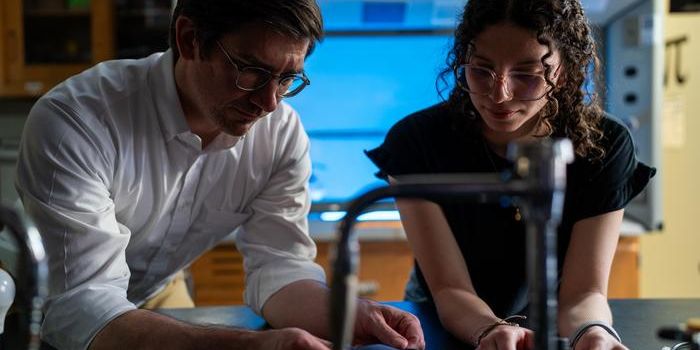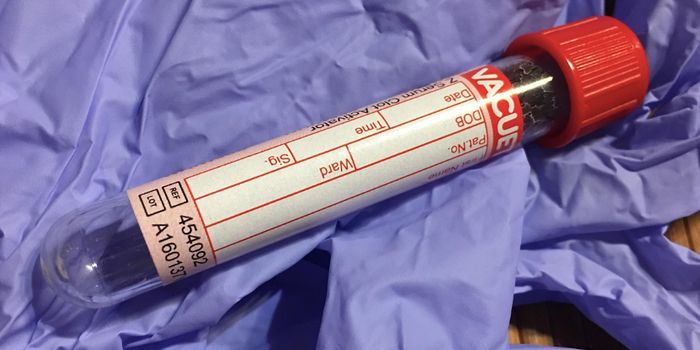A Surgical-Grade 'Caulk' For Wounds?
We’ve all experienced the annoying Band-Aid that won’t stay on when wet. And when it comes to bigger cuts and tears, the problem is even more apparent. To solve this problem, biomedical engineers from the Harvard Medical School and the University of Sydney have created a surgical elastic glue that seals wounds in 60 seconds.
The newly engineered life-saving glue is known as MeTro. Made from a modified human protein, the “elastic hydrogel sealant” takes the form of a liquid that’s easily injectable. Unlike any liquid, the MeTro substance gels on the surface of tissues. "The beauty of the MeTro formulation is that, as soon as it comes in contact with tissue surfaces, it solidifies into a gel-like phase without running away," said Nasim Annabi, the study’s lead author.
The team tweaked the substance so that it responds to UV light, which dries and sets the glue. "We then further stabilise it by curing it on-site with a short light-mediated crosslinking treatment. This allows the sealant to be very accurately placed and to tightly bond and interlock with structures on the tissue surface,” said Annabi.
Because the material is flexible and elastic, it can bend, stretch, and contract as needed on the surfaces of vital organs, such as the heart and lungs. And because MeTro is injectable, surgeons can close difficult-to-reach wounds more effectively, in a less invasive manner and without the use of staples or sutures.
Another distinguishing characteristic of MeTro is its capacity to be fine-tuned. That is, surgeons can control how long the sealant will last – a factor that could better promote natural wound-healing.
MeTro can be thought of as a smarter, surgical-grade caulk. "When you watch MeTro, you can see it act like a liquid, filling the gaps and conforming to the shape of the wound," said Anthony Weiss, a professor at the University of Sydney, and the study’s co-author. "It responds well biologically, and interfaces closely with human tissue to promote healing. The gel is easily stored and can be squirted directly onto a wound or cavity.
"The potential applications are powerful -- from treating serious internal wounds at emergency sites such as following car accidents and in war zones, as well as improving hospital surgeries,” Weiss added.
"MeTro seems to remain stable over the period that wounds need to heal in demanding mechanical conditions and later it degrades without any signs of toxicity; it checks off all the boxes of a highly versatile and efficient surgical sealant with potential also beyond pulmonary and vascular suture and staple-less applications," said Ali Khademhosseini, a professor from Harvard Medical School, and the study’s senior author.
So far, MeTro has successfully sealed blood vessels in rats and in lungs in pigs without evidence of leakage or rupture, the authors write. The next phase is to test in people. "We have shown MeTroworks in a range of different settings and solves problems other available sealants can't. We're now ready to transfer our research into testing on people. I hope MeTro will soon be used in the clinic, saving human lives,” Weiss concluded.
Additional sources: University of Sydney









